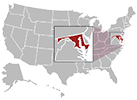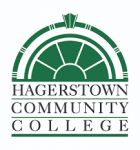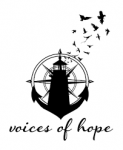
Are you a recovering addict? Is a close friend or family member in recovery?
If so, you understand recovery and a career as a recovery coach could be fulfilling.
As a recovery coach, it’s your job to connect with clients daily to help them through the recovery process.
You can help them find 12-step programs in the area and encourage them to keep going.
If a client needs to see a psychiatrist, therapist, or family counselor, you will help them get appointments to help them stay on the road to recovery.
If you’re interested in a career as a recovery coach, you must meet the requirements before becoming certified.
Page Navigation
How To Become a Recovery Coach In Maryland
The first step in becoming a recovery coach in Maryland is to have a high school diploma or an equivalent.
Without either of these, you can’t begin training for your Certified Peer Recovery Specialist (CPRS) certification, which is necessary to become a recovery coach.
After completing the training and receiving your certificate, you must complete 500 hours of documented, supervised paid, or volunteer peer recovery support in a clinical or community setting.
When you have completed the 500 hours, you can begin working independently.
You also need real-life experience with addiction, such as being a former addict yourself or watching a close friend or family member struggle with addiction.
If you’re considering becoming a recovery coach, there are schools and programs in Maryland where you can complete your CPRS training.
Recovery Coach Programs In Maryland
There are a few programs in Maryland where you can complete your CPRS training to become a recovery coach.
Haggerston Community College
Haggerston Community College offers a Certified Peer Recovery Peer Specialist program approved by the Maryland Addictions and Behavioral-Health Professional Certification Board (MABPCB).
The program allows students to utilize the Connecticut Community for Addiction Recovery (CCAR) curriculum used in most states.
The curriculum topics include:
- Guiding and Mentoring Others
- Ethics and Ethical Implications
- Clinical Internship
To enroll in the program, you must complete the scholarship application and upload all required documents.
Failing to do this will cause you to lose your spot in the program.
You must also pass a background check and the WorkKeys Assessment.
It can take up to two weeks to be approved for a scholarship, and it will cover all or part of the program cost.
Voices of Hope Inc.
Voices of Hope Inc. offers a Certified Peer Recovery Specialist Certification program, and to be eligible, you must have been in recovery for at least two years, and this must be verified.
The same is true if you have a close friend or family member in recovery.
The program includes the full curriculum, internships, exam preparation, and supervision, so you will have the necessary credentials to become a certified recovery coach.
The training you’ll receive will give you the skills, knowledge, and ability to help people struggling with addiction.
After completing the program, you can find a job at a medical organization, in the just system, or in public health and community-based organizations.
The program is funded by a grant from the Maryland Department of Labor,
Mental Health Association of Maryland
The Mental Health Association of Maryland offers Certified Peer Recovery Specialist training for anyone interested in a career as a recovery coach.
This is a 12-hour course, runs over three days, and is approved by the MABPCB, which is Maryland’s CPRS credentialing board.
You’ll learn everything necessary to become a successful recovery coach.
Thanks to generous donations from the Baltimore Country Local Behavioral Health Authority, Behavioral Health Systems Baltimore, and the University of Maryland Training Center, the program is free.
Copeland Center For Wellness and Recovery
The program offered by Copeland Center For Wellness and Recovery is a state-certified certification program, and you must meet the following requirements to be accepted in the program.
- You must be at least 18 years old.
- You must be a resident of Maryland for at least 51 percent of the year.
- You must self-identify as a person in long-term recovery for at least two years.
This is a 46-hour program and is broken up into four parts.
- Advocacy Domain- 10 hours
- Ethical Responsibility Domain- 16 hours
- Mentoring/Education Domain- 10 hours
- Recovery/Wellness Domain- 10 hours
You can use 12 in-service training hours as part of the 46-hour program, and they must be provided within an agency.
After completing the program, you must complete 500 hours of documented work in a facility and must be overseen by a Registered Peer Supervisor.
The program costs between $0 to $1,300, depending on your financial situation and your ability to receive a scholarship.
Recovery Coach Representative Schools in Maryland – Summary Table
Top 4 Schools in Maryland
| School Name | Address |
|---|---|
| Haggerston Community College | 11400 Robinwood Dr, Hagerstown, MD 21742, United States |
| Voices of Hope Inc. | 409 W Pulaski Hwy, Elkton, MD 21921, United States |
| Mental Health Association of Maryland | 1301 York Road Suite 505. Lutherville, MD 21093, United States |
| Copeland Center For Wellness and Recovery | P.O. Box 6464, Chandler, AZ 85246, United States |
What Is the Average Salary For a Recovery Coach In Maryland?
Finding a job as a recovery coach in Maryland shouldn’t be a problem. According to the Department of Labor, the expected job growth for recovery coaches is 11 percent over the next ten years.
According to ZipRecruiter, the average starting salary for a recovery coach in Maryland is $33,292, which is higher than the national average of $32,815.
Your salary will depend on your experience and the facility that hires you.
Annual Salary Range:Average Salary of Professional Recovery Coachs in Maryland
| City Name | Salary |
|---|---|
| Baltimore | $35,298 |
| Frederick | $36,882 |
| Gaithersburg | $38,121 |
| Bowie | $38,144 |
| Rockville | $38,178 |
| Hagerstown | $34,900 |
| Annapolis | $36,384 |
| College Park | $38,224 |
| Salisbury | $36,504 |
| Cumberland | $31,508 |
Regional Salary in Maryland
| Region | Employed | Avg. Annual Salary | Avg. Hourly Pay | Top 10% Annual Salary | Bottom 10% Annual Salary |
|---|---|---|---|---|---|
| Baltimore-Columbia-Towson, MD | 2,030 | $64,780 | - NA - | $100,410 | $31,200 |
| Hagerstown-Martinsburg, MD-WV | 100 | $59,290 | - NA - | $93,170 | $34,260 |
| Lexington Park, MD | 100 | $65,460 | - NA - | $99,230 | $34,910 |
| Salisbury, MD | 80 | $68,370 | - NA - | $96,810 | $31,200 |
* Employment conditions in your area may vary.
If you need more information about becoming a recovery coach, the FAQs listed below can help.
Frequently Asked Questions
Where can I work as a recovery coach?
You can work in a variety of settings after completing your recovery coach certification, such as recovery residences, criminal justice environments, and drug courts.
You may also be able to find a job in a hospital or mental health facility.
Due to the role you’ll play in your clients’ lives, you must be available 24 hours a day, including nights, weekends, and holidays.
You can also work for yourself and can work part-time.
Do I need skills that can’t be learned in the classroom to be a successful recovery coach?
Yes.
You must have certain natural skills and abilities to be successful, including:
- Empathy
- Communication skills
- Active-listening skills
- Interpersonal skills
- Problem-solving skills
- Collaborative skills
- Resilience
How will my role as a recovery coach differ from that of a sponsor?
Everyone in 12-step programs must have a sponsor.
This is a member of AA and NA who has been in recovery for at least a year.
They help people in recovery navigate the 12-step program and holds their sponsees accountable for skipping meeting and falling off the wagon.
Sponsors see their sponsees periodically, often during meetings.
As a recovery coach, you will interact daily with your clients and must be available to them 24 hours a day, seven days a week.
You will be responsible for helping your clients make good decisions throughout recovery and will connect clients with psychiatrists, therapists, and family counselors if necessary.
Do I need certification to become a recovery coach?
Yes.
You’ll need more than experience with addiction to become a recovery coach, and you can’t be hired without a Certified Peer Recovery Specialist Certification.




